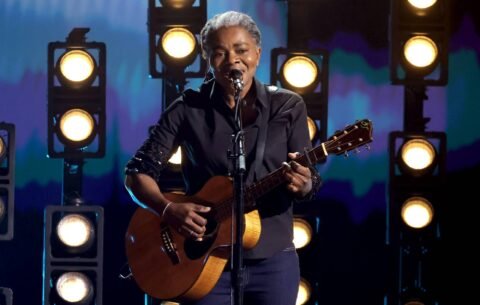
(Credits: Far Out / TIDAL)
To make it in the music industry, no matter the era, it’s always good to know how to navigate tough situations. While talent is undeniably the crux of it all, understanding how to push when things don’t feel quite right is also a major part of the job. And while some musicians and labels prefer teams to put up and shut up, Don Henley has never really entertained the whole idea.
While it would be easy to blame all the fallout in the Eagles on Henley’s inability to submit to ideas he doesn’t necessarily agree with, his resilience and strength in the face of adversity stems more from caring about art and the business that makes it happen. After all, it would be far off to assume Henley was ever being difficult for the sake of it, with his drive usually rooted in something far more easy to get behind—passion.
In other words, Henley’s so-called pushy side rarely comes out of nowhere and usually reflects his belief in his own artistic vision or the things going on in his personal life at any given time. Several instances have called for the musician to be painted as the villain, but a closer look at the reasons behind such fallout points towards circumstances that might be more complicated than it seems.
For instance, the controversy from the fallout with David Geffen made it seem like Henley might have been in the wrong, but, ultimately, many of his behaviours actually came from wanting to do right by his own art and push to get the recognition he felt he deserved. In his eyes, his work was being exploited, and his frustrated fight to stand up for himself effectively changed his entire outlook, making him seem and feel a lot more robust in his approach by the time he reunited with the Eagles.
However, this also meant that Henley developed a newfound appreciation for those who had also embarked on a similar transformation, with the Eagles’ live reunion record indicating at some minor discrepancies behind the scenes with their perceived ways of working. According to Henley, Glenn Frey had suddenly become the “lyric police”, but he admired him all the more for it.
In fact, it pushed him to lean more into his refreshed attitude and made the Eagles feel even more refreshed in this second coming. As he explained to Louder: “What I learned about lyrics, and rejecting lyrics, I learned from Glenn and J.D. Souther and Jackson Browne. So it’s just coming back to haunt them. They made me the opinionated prick that I am today!”
Adding: “Now Glenn’s pretty good at policing lyrics himself. Sometimes I will defer. We all get too close to things to see them sometimes, and it’s great to have him come in, if I get stuck he’s great at unsticking.”
Therefore, although these musicians instilled the practice in him all along, Henley’s strengthened resilience came through during this time, reminding him of the value of pushing his ideas and views when he believes them to be right. As a result, this high-stakes environment pushed the Eagles to become even better, allowing Henley the kind of reception he knew he was deserving of all along.
Related Topics





